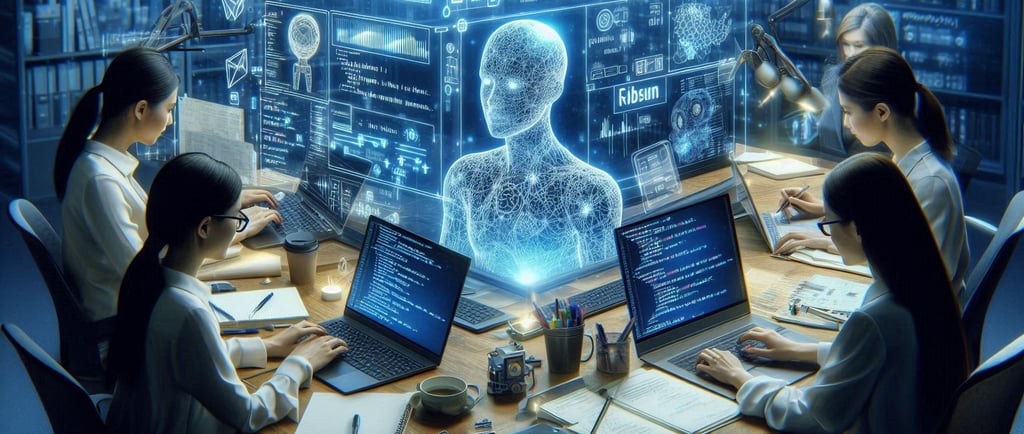Will AI Replace Software Developers? Tech Leaders Debate the Future of Coding
Anthropic CEO Dario Amodei predicts AI will write nearly all code within a year, raising concerns about the future of software development jobs. Tech leaders like IBM’s Arvind Krishna and Meta’s Mark Zuckerberg offer more measured views, seeing AI as a productivity booster rather than a total replacement. While AI is reshaping how code is written, industry growth projections suggest that human developers will remain essential for the foreseeable future.
WORKUSAGE
The AI Maker
6/26/20252 min read


A provocative prediction from Anthropic CEO Dario Amodei is sparking debate across the tech world: within the next 12 months, AI could be writing nearly all of the world’s software code. Speaking at the Council on Foreign Relations, Amodei forecasted that 90% of code might be generated by AI within just 3 to 6 months—a bold claim with massive implications for one of the most sought-after and stable career paths in technology.
While Amodei acknowledges that human developers are still needed—for now—to guide AI with parameters, conditions, and high-level goals, he believes even those tasks may soon fall within AI’s reach. “Eventually all those little islands will get picked off by AI systems,” he said, referring to the residual areas where human intuition still holds sway.
Yet, not all tech leaders share this apocalyptic view of coding careers.
IBM CEO Arvind Krishna offered a far more grounded perspective during his talk at SXSW. He argued that only 20–30% of code will be written by AI in the near term, largely for simpler use cases. Krishna remains confident in the enduring value of human programmers, especially as AI can enhance their productivity and allow companies to scale product development faster. “The most productive company gains market share,” he said, hinting that AI-assisted programmers could drive explosive business growth—not obsolescence.
Mark Zuckerberg shares a similar outlook. During Meta’s January earnings call, he envisioned 2025 as the year AI engineering agents will reach the skill level of a competent mid-level developer. While acknowledging the power of generative coding tools, Zuckerberg sees them as partners to human engineers—not their replacements.
At Google, AI is already transforming the coding workflow. CEO Sundar Pichai revealed that more than 25% of new code is generated by AI. However, Google is also among several major tech firms—alongside Intel and Tesla—that have shed thousands of employees in recent years, raising questions about whether the rise of AI is contributing to these cuts.
Despite the technological upheaval, the U.S. Bureau of Labor Statistics projects that software development will continue to grow by 17% between 2023 and 2033—well above the average for all occupations. This suggests that even with AI in the mix, demand for developers isn't disappearing any time soon.
So where does that leave the future of programming? Likely in a hybrid world—where AI automates routine tasks and developers focus on strategic problem-solving, product design, and AI oversight. Rather than replacing engineers, AI may be reshaping what engineering means.
As Amodei puts it, perhaps we need to rethink our definition of usefulness in the workforce. AI may write the code, but humans will still be responsible for giving it purpose.
Cited: https://fortune.com/2025/03/13/ai-transforming-software-development-jobs-meta-ibm-anthropic
Your Data, Your Insights
Unlock the power of your data effortlessly. Update it continuously. Automatically.
Answers
Sign up NOW
info at aimaker.com
© 2024. All rights reserved. Terms and Conditions | Privacy Policy
